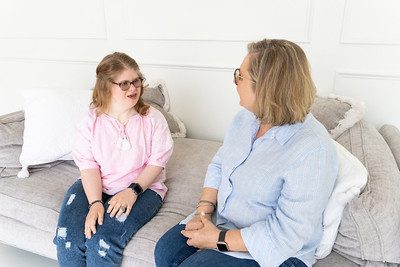Elizabeth Thompson has been involved with HDI for a while, but she’s always ready for an opportunity to learn more.
Thompson, who works with the RETAIN project in Administrative Support, recently received her certificate in Universal Design.
“I started my journey with HDI350-Introduction to Universal Design in the fall of 2022, and then I finished it up this most recent semester in ’24,” Thompson said.
The certification program teaches seven basic principles of universal design – Equitable Use, Flexibility in Use, Simple and Intuitive Use, Perceptible Information, Tolerance for Error, Low Physical Effort, and Size and Space for Approach and Use – then explains how to apply these ideas in multiple different spaces.
Though Thompson was already acquainted with aspects of universal design, she came away with a much broader and wider perspective on the subject.
“I was able to stretch my own thoughts and opinions about what universal design is,” she said. “Whatever you’re looking at, especially websites and…documents and things like that, that there is just so much that can be improved for people to increase the accessibility.”
And while learning about digital accessibility and the many tools that can be used both to enable it and to assess it.
However, as much as she appreciated learning about those things, when they began to cover universal design in terms of physical space, Thompson got really excited.
“That’s always been my thing,” she said. “I’ve remodeled several houses for my own living and one for my parents, so I really, really like that physical world of making sure that someone has full access and can go as many places as possible.”
Thompson also talked about how earning this certificate helped her learn about the ways in which universal design can help everyone, not just people with disabilities.
“A ramp makes it accessible for someone who uses a wheelchair or power wheelchair,” Thompson said. “But the mother or father with a stroller, that ramp is very useful for them. Even somebody who’s walking their pet. Not all animals like to go up and down steps. It just broadens the access.”
All in all, Thompson said the entire process was an excellent learning experience that gave her a lot of new knowledge and tools that can help a lot of people.
“There was no part that didn’t excite me,” she said. “Universal design helps the world to be more accessible for everybody.”
To learn more about the UDL Certificate, follow this link: https://oldhdi.hdiuky.net/undergraduate-certificate.

